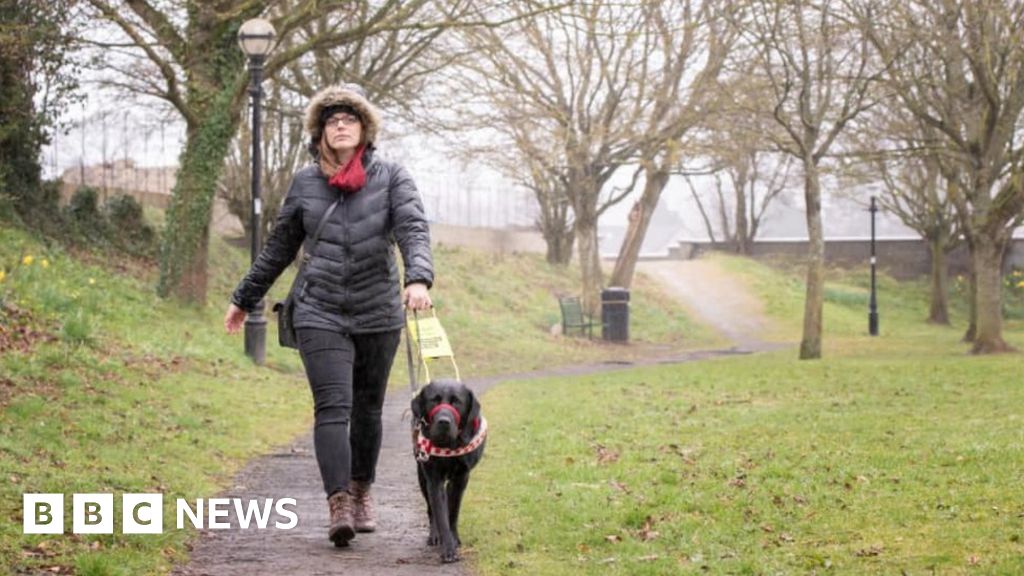Image copyright
IsSka Birnie Photography
Sam Little, a disabled green enthusiast from Aberdeenshire, shares how she builds eco-friendliness into her life even though it is often a less accessible option.
I have low vision and a hearing impairment and I’m passionate about doing my bit for the environment. It’s true that change needs to happen on a massive scale, and that being green as a disabled person can be harder to accomplish, but I believe that every little helps and I try to lead by example.
I have tips to pass on. Here are some of the things I incorporate into my everyday life, and some of the hurdles I face when trying to be a disabled eco-warrior.
Be organised
This is something I already excel when managing the daily challenges of disability but it also allows me to be more eco-conscious. Planning shopping trips with friends and family who can help me fill up my glass jars at zero waste shops, or organising someone to pick up milk in a refillable bottle for me when they get theirs.
Wear a rucksack
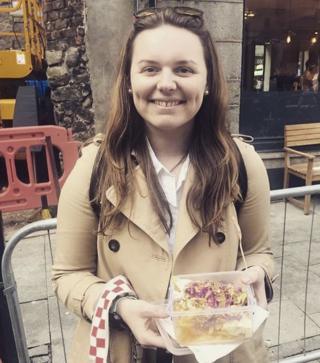
I cannot be eco conscious without one! I already have to carry quite a few things: bowl for Ziggy the guide dog, cane just in case, hearing aid accessories, glasses etc, but it turns out that it helps the environment to have a big sack on your back.
My local green grocer is super friendly and helps me locate everything I need and pack it in the rucksack whenever I need to top up my weekly shop – this means I don’t need single-use plastic bags and it also keeps my hands free so I can use the dog better.
I’ve always carried a reusable water bottle and coffee cup with me at work because they have lids on and, as I’m forever knocking my drinks over, they stop liquid going everywhere. Who knew my clumsiness would also be eco-friendly!
Grocery Deliveries
This may at first sound counter-intuitive because vehicle transportation has a high carbon footprint. However, one could argue that if deliveries are already being made, it makes more sense to use a delivery service than a separate solo journey to the supermarket by taxi.
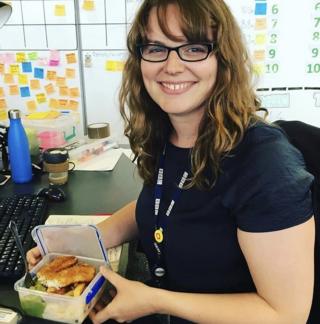
I always try and order in bulk, and I am lucky that I have vegetable and meat box delivery services near where I live, which only deliver on certain days to minimise their foot print. From an accessibility and ethical point of view this is great, as I don’t have to deal with the stress of navigating my way round a food shop, and I know my food is coming from a local business and hasn’t been shipped long distance. It also works out cheaper as it stops me from buying beer, chocolate and ice cream!
Travelling
I can’t drive so, by proxy, my carbon footprint is lower than those who get out and about by car. There are occasions when I need to get a taxi or a lift for accessibility reasons which makes me feel bad but, until there are more electric options, I don’t know how to solve this one. I always ask if an electric or hybrid is available when I book a taxi in the hope that increased customer demand will encourage the taxi companies to invest in greener vehicles. I got my first electric taxi in Dundee earlier this year, which was very cool.
I make a conscious effort to walk lots to maintain Ziggy’s training and to make sure we both get exercise, further reducing my carbon footprint.
Hearing Aids
This is a tricky one as my aids are powered by single use batteries, so I make a real effort to recycle them – I am hoping my next pair are rechargeable. The technology is there but it comes at a price.
Guide Dogs
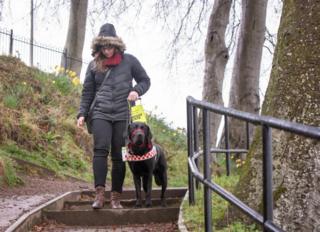 Image copyright
Image copyright
Iska Birnie Photography
I use biodegradable poop bags and I buy from online shops which sell dog toys made out of sustainable or recycled materials. I also get second hand cuddly toys from charity shops – dogs don’t care if they’re new.
Clothes Shopping
This is one I really struggle with. Fast fashion is a hot topic at the moment, and there is a huge emphasis on buying locally and from charities. I find shopping pretty stressful anyway and if I can’t get something online, I organise a day out with my mum or a friend as clothes shopping with a guide dog is not ideal – no one wants dog hair on new clothes.
Charity shops don’t tend to be open late or on a Sunday, or offer online options. They also don’t have accessible changing rooms to try clothes on, and I often find that the staff are less aware of how to interact with disabled customers than some of the major high street stores.
Protests and Beach Clean Ups
I made a video for BBC Scotland’s The Social about a beach clean up in Aberdeen. I went with my husband and helpfully pointed out litter I thought I could see – more often than not they were twigs and shells. However, it felt great to be a part of the event and to meet likeminded people. I left feeling like I had contributed – just maybe not in the way I would have liked.
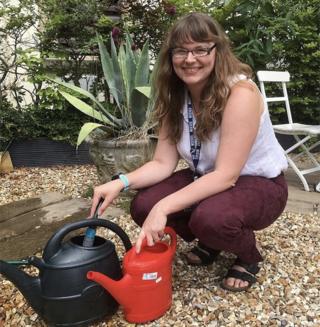
With protests, beach clean ups and similar events, if you don’t already have people you can go with or know from that scene, it is difficult to go independently and get around safely. It has made me more determined to find other ways to raise awareness that are accessible. Whether that’s documenting doing plastic free July on Instagram, or talking about the issues on the BBC Ouch podcast, everyone can find a way to do their bit. I believe the key is to keep the conversation going.
I couldn’t be as green as I am without the help of my husband, or family and friends. But in some ways that’s OK because I find that my passion for finding ways to be more sustainable has rubbed off on the people around me, and in their efforts to help me, they have made some lifestyle changes.
Climate change does not discriminate – everyone will be affected which is why it is important all of us take action in whatever way we can.
For more Disability News, follow BBC Ouch on Twitter and Facebook, and subscribe to the podcast.
